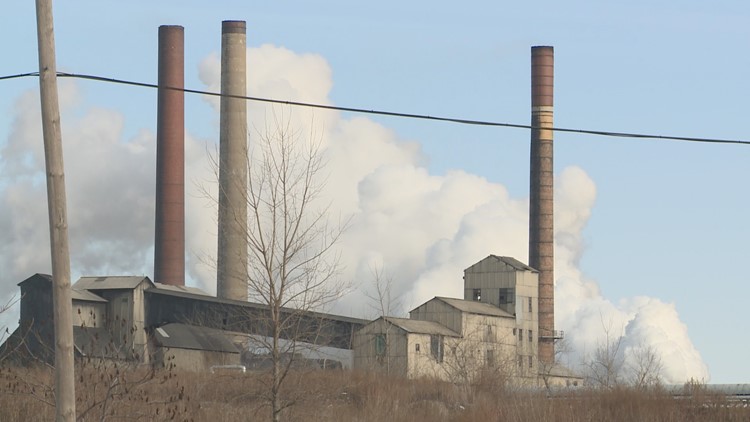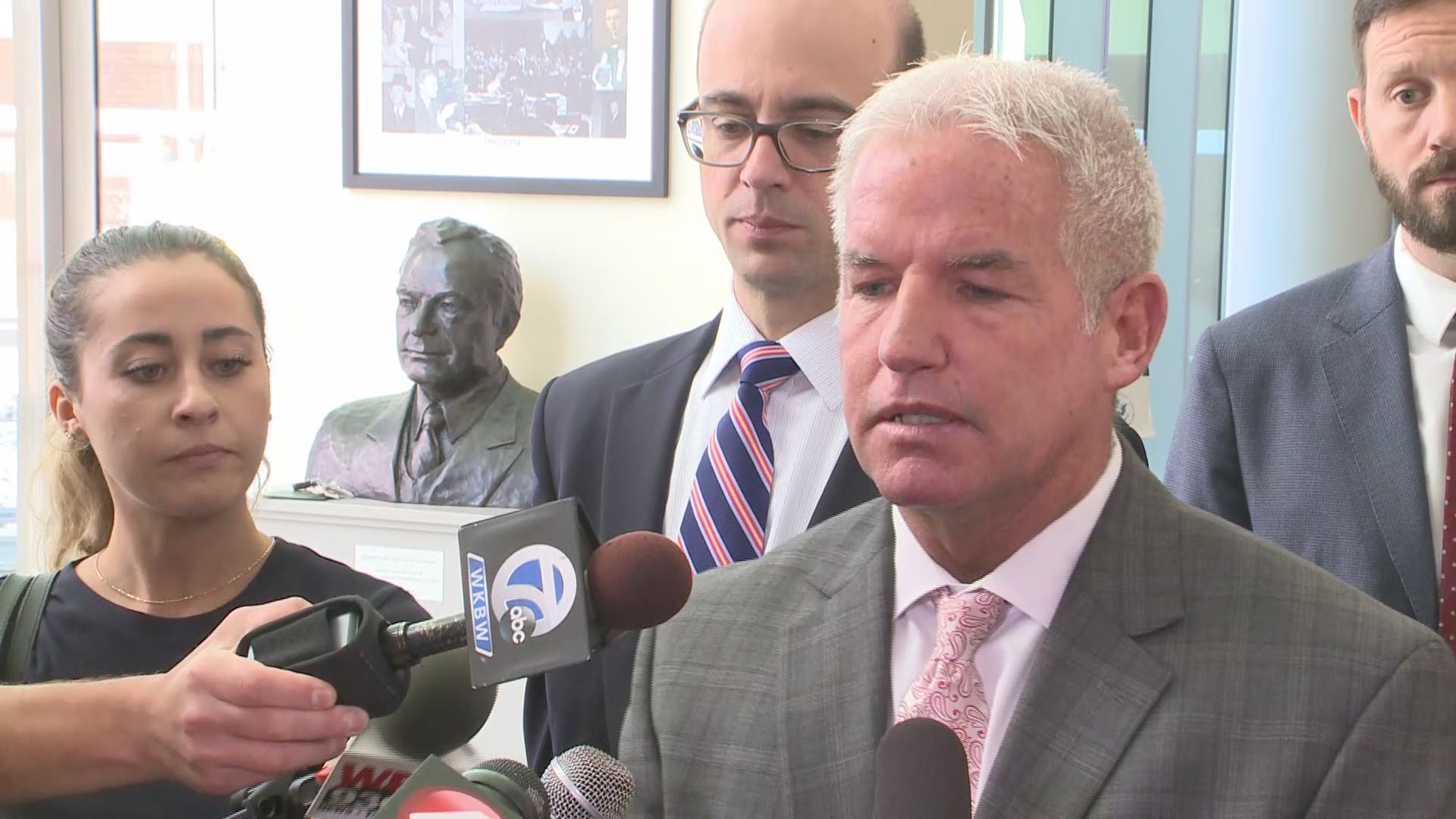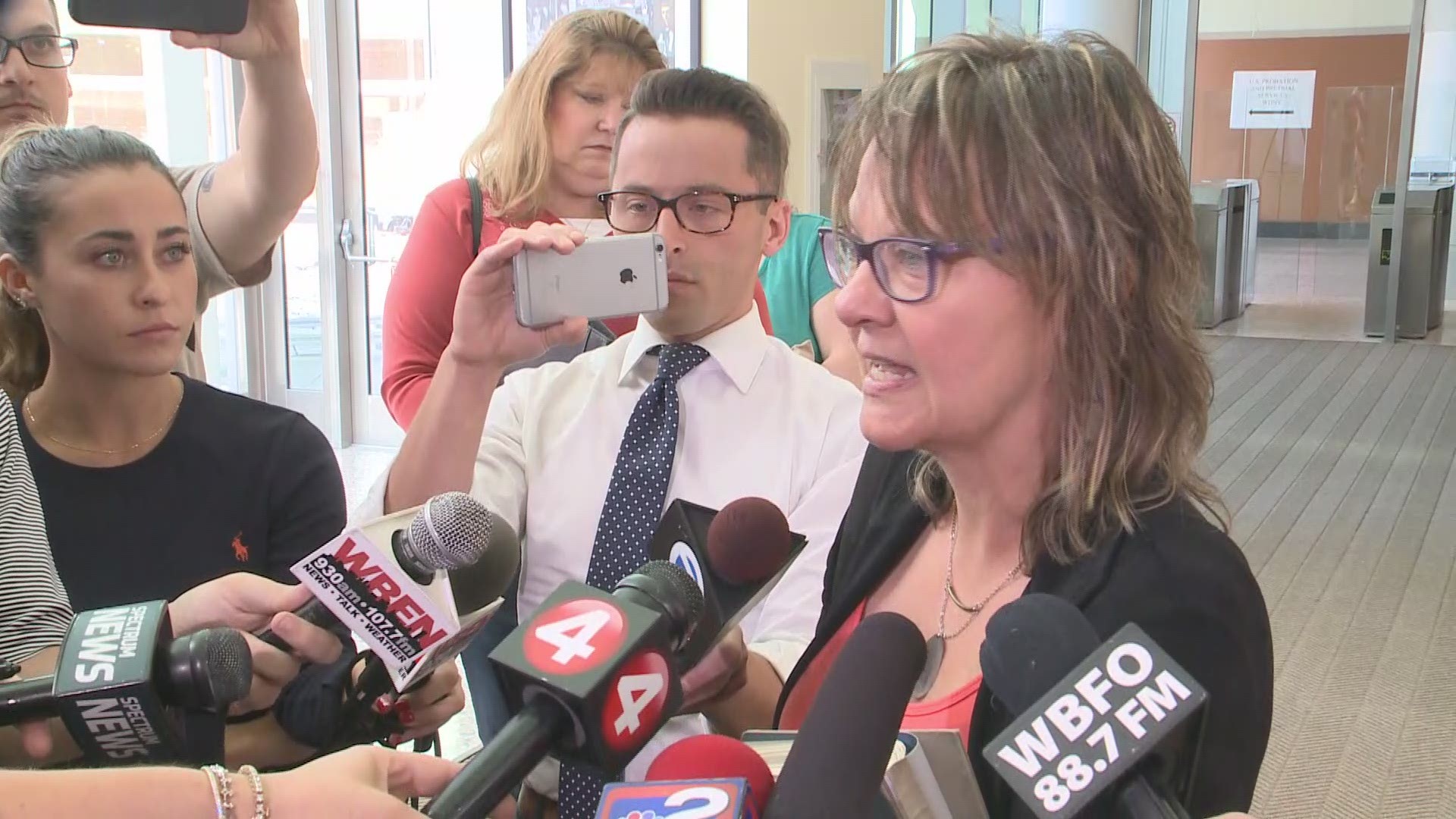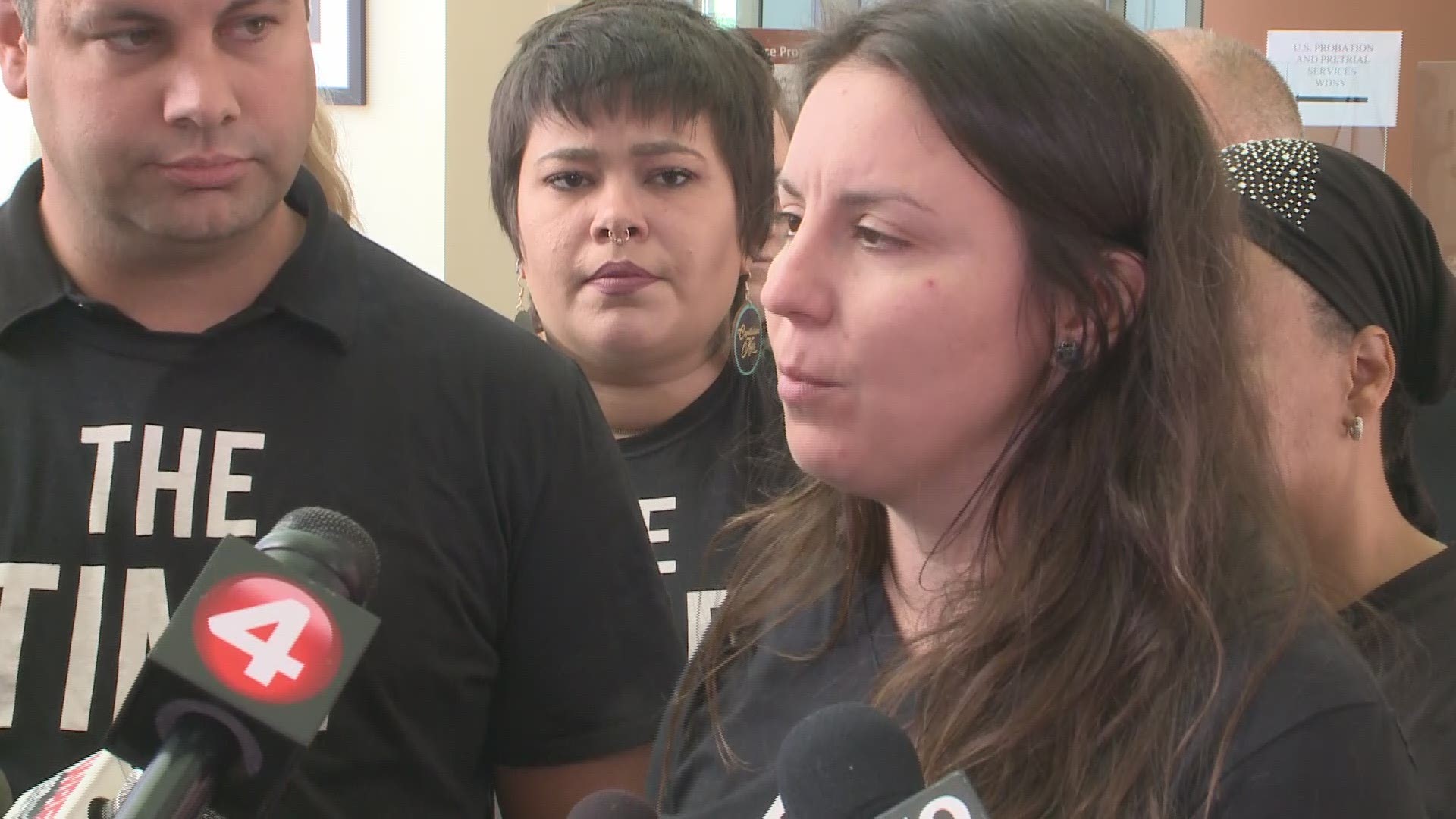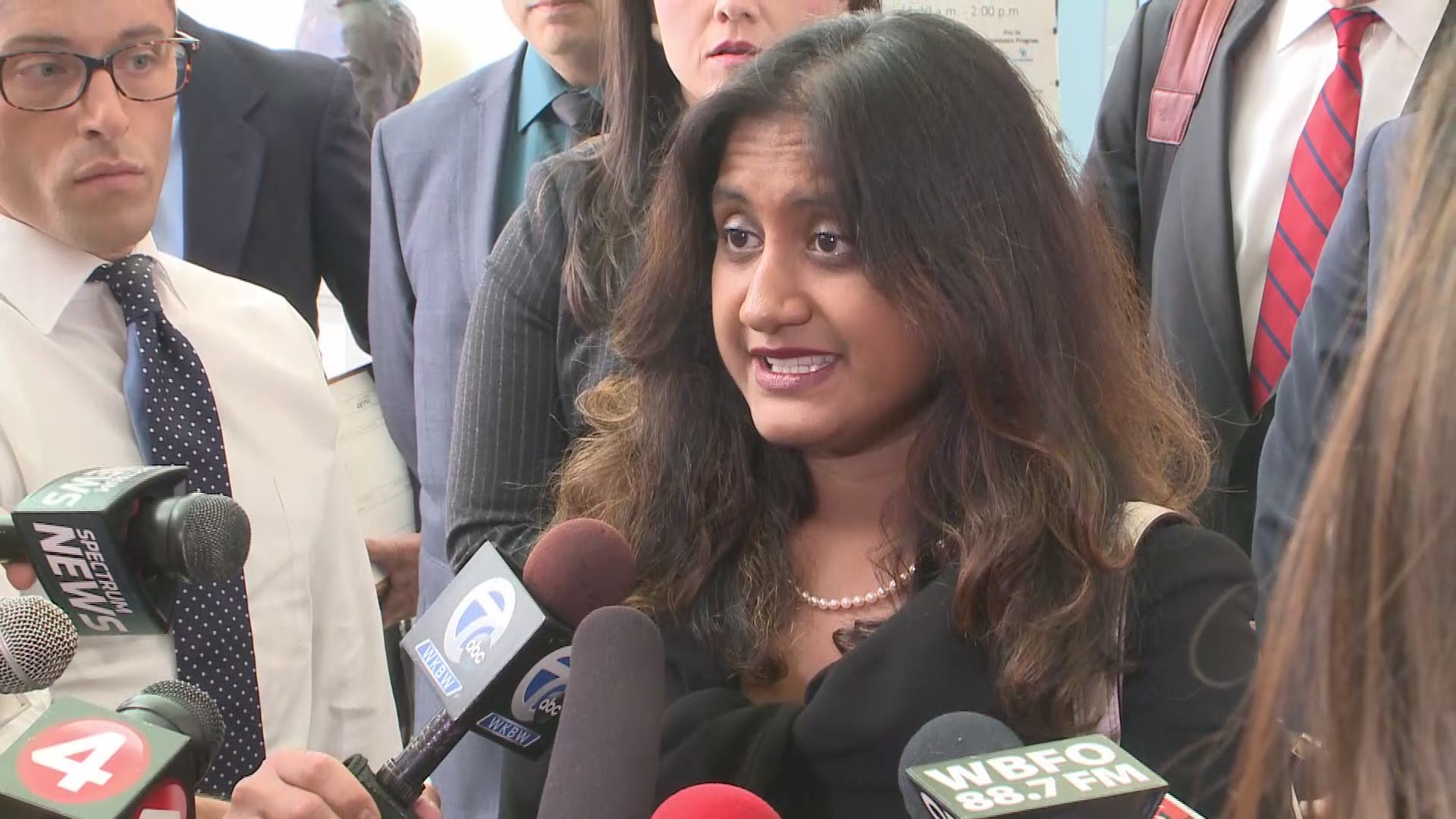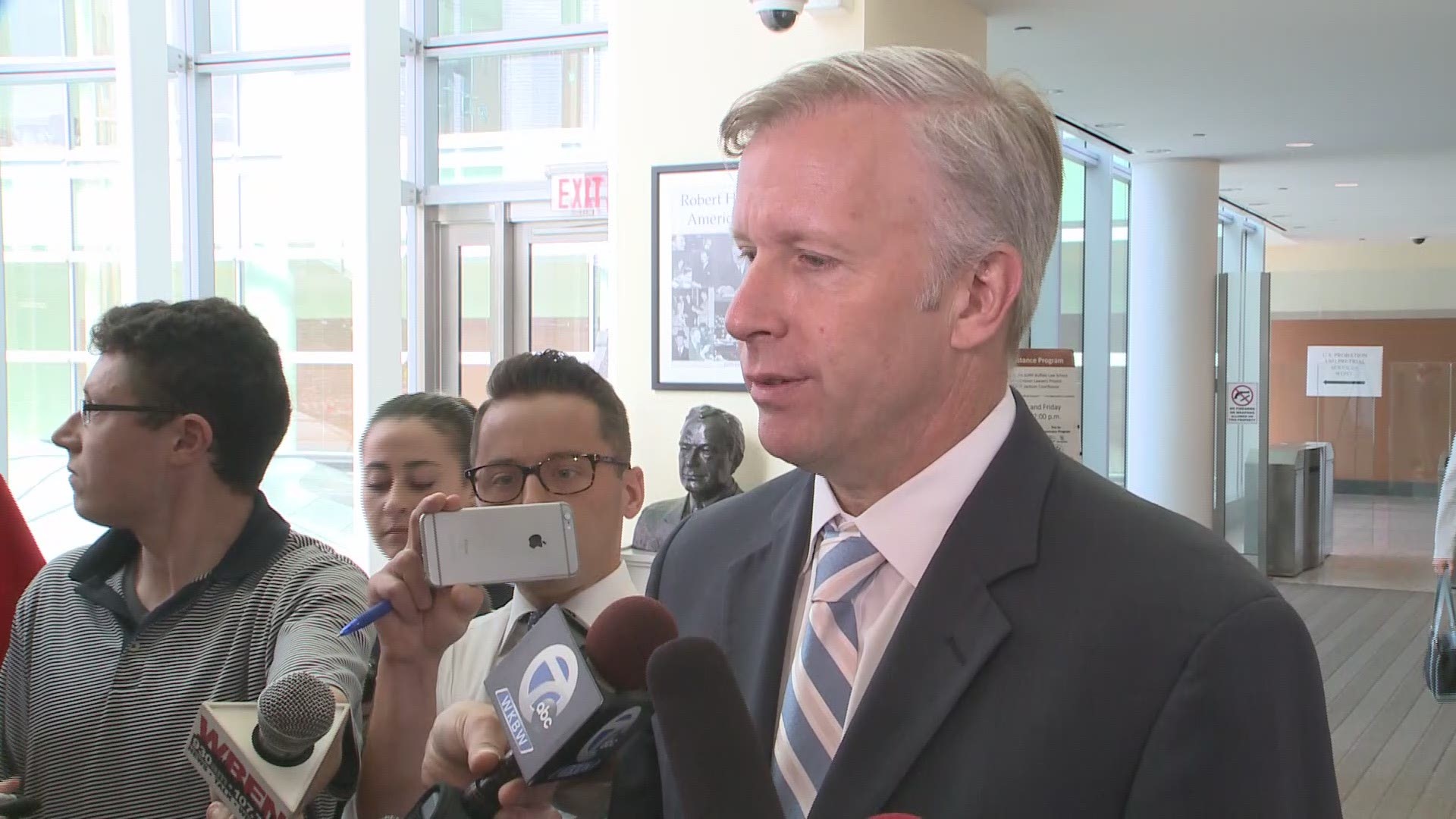BUFFALO, N.Y. — A judge has ruled that Tonawanda Coke can still operate, but he modified and added to the company's probation.
Judge William Skretny made the decision in Federal Court on Friday.
There are three parts to the modified probation: 1) Fix the coke oven battery 2) complete a battery test protocol within 60 days of battery repairs 3) get third party monitoring of the operations.
Richard Westbrook, whose company was hired to work with Tonawanda Coke to fix opacity problems, testified that the company could have opacity levels down to 20 percent or less by mid-October. The battery test mandated by the judge will assess exactly what is coming out of the waste heat stack.
Westbrook testified last week that he recommends silica welding to fix cracks and advised Tonawanda Coke to repair and return empty coke ovens back to service. He also said they need to clean goosenecks, reinspect battery walls, and offer more training.
Tonawanda Coke must also make its final community service payment (from the previous sentence in 2014) by 10/8/18. It’s $2+ million.
Judge Skretny said the government failed to present credible evidence that the increased opacity has hazardous air pollutants in it and failed to prove that it’s hazardous gas coming from the waste heat stack.
When explaining his sentence, Judge Skretny said the government's own witness testified that they couldn't distinguish the chemical makeup of the waste heat stack emissions without a stack test, which hasn't been done since 2010.
The judge reference testimony from DEC regional air pollution control engineer Michael Emery.
Emery said in court benzene levels were 97.2 ppm (parts per million) from coke oven door 75 during an inspection on September 10. He said that wouldn't affect opacity coming from the stack. Benzene levels from the stack were 2.25 ppm during that same time period.
Skretny said this case had to focus on Tonawanda Coke’s probation violation as related to opacity, not other worries about air pollution, health risks, or plant conditions, though he said those are valid concerns that still need to be addressed.
Despite allowing the plant to remain open, Judge Skretny said "Tonawanda Coke has failed this community again" and said nothing has changed since he sentenced the company in 2014 for previous Clean Air Act violations. He said the company has been operating in non-compliance for years. He said Tonawanda Coke continues to "put a culture of profit over environmental consciousness."
Judge Skretny said when deciding a sentence, he had to consider the nature of the offense, the past history of the defendant, the need to protect the public, and deter the company and others from committing similar crimes. He said the sentence had to be commensurate with the offense and the harm caused by it.
Clean air advocates and people who live near Tonawanda Coke side with the government and wanted the plant closed for good. Skretny received 35 letters from the community, nearly all of them requested a complete shutdown of Tonawanda Coke, he said.
Rebecca Newberry, executive director of the Clean Air Coalition of Western New York told reporters after the hearing that they're mourning Skretny's decision.
Attorneys for Tonawanda Coke said a shutdown would have been a death sentence for the company. They said letting the coke ovens go cold would allow infrastructure to crumble, and a rebuild would cost $60-70 million.
Judge Skretny addressed Tonawanda Coke CEO Mike Durkin directly and said had the government presented other evidence, Tonawanda Coke might have been facing a shutdown.
Durkin said he accepts responsibility, the company is taking steps to fix problems, and said his goal is to be a good neighbor.
Government attorneys argued that Tonawanda Coke continues to release poisonous gas from its coke oven operations and continues to violate its probation from a 2013 criminal conviction for violating the Clean Air Act.
U.S. Attorney Aaron Mango said Tonawanda Coke is "running an environmental Ponzi scheme" and "keeps making assurances they are going to fix things." He added that "when they're found out, they [Tonawanda Coke] shrug their shoulders, pay a fine and move on."
Judge Skretny ruled Monday that the company is guilty of having higher than acceptable opacity of its emissions. That refers to the amount of background you can see through the smoke coming from the waste heat stack. Twenty percent opacity is allowed.
During testimony last week, we learned at times over the past six months, levels were more than three times that.
The company doesn't deny increased opacity but said there's no proof that it creates an imminent and substantial danger. Attorneys and witnesses for Tonawanda Coke said the company is taking steps to correct the problems.
Judge Skretny warned Durkin he could soon find himself back in federal court if the modified probation requirements aren't met or if the battery test protocol reveals information that warrants a new hearing.


